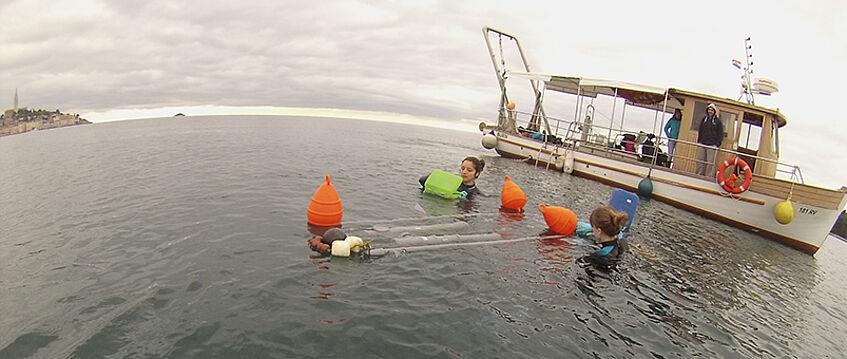Research

Copyright: Maria Pinto
Research questions
- How do media, citizens, civil society actors as well as policy makers frame plastics as an environmental problem and which solutions do they propose?
- What is the interplay between biotic and abiotic processes on plastic particle properties with their potential adverse environmental effects?
- How does plastic behave in the environment considering freshwater, estuary and marine conditions, as well as the continuum from macro-to micro-and nanoplastic?
- What knowledge do societal actors (citizens, policy makers and NGOs) base their positions on and which kinds of knowledge do they use or see as lacking?
- In which ways arenew research insights on these questions taken up and debated and how do they potentially contribute to shifting the societal perception of and debate around plastics?
- Which insights can researchers working on plastics draw from how societal actors frame problems and solutions around plastic, and the role scientific knowledge plays in all this?
The research platform PLENTY tackles the topic of plastic pollution within the first three years from three different perspectives, bringing together experts from the fields of Bio-Oceanography, Nanogeosciences and Social Sciences.
The Bio-Oceanography group
Within the research platform PLENTY, the Bio-Oceanography group will address specifically the questions of how the microbial community composition and activity of the biofilm on plastics in various aquatic environments (e.g. freshwater as the Danube River or marine as the northern Adriatic Sea and the Atlantic) differ on a seasonal scale, and to what extent the microbial community composition of plastics biofilms in the freshwater systems is similar to that of the marine systems (i.e. can one identify a core microbiome colonizing microplastics?). To do so, results from the Nanogeosciences group on aggregation and uptake/leaching will be integrated in the experimental setup.
The group is led by Prof. Gerhard Herndl. Participating researchers: Maria Pinto, MSc; PhD student: Mili Shah.
The Nanogeosciences group
The Nanogeosciences group will focus on questions of heteroaggregation (i.e. aggregation of plastic particles with naturally present organic and inorganic colloids) (and/or deposition) of plastic particles under varying environmental conditions, and how particle modifications change contaminant uptake and leaching of additives. An example where the close linkage between both groups within this proposed research platform PLENTY is key to understanding of the behaviour of plastics in the environment is: How do changes in particle properties from aggregation, abiotic aging, and abiotic biofilm formation change sorption of organic contaminants by plastic particles or their leaching of additives? What is the influence of solar radiation, aggregation, the uptake of contaminants or the presence of plastic additives on biofilm community formation and microplastic biodegradation will be investigated. Change from variations in aquatic conditions (freshwater, estuarine, marine) and size (macro, micro, nano) will be taken into account studying these processes and their impact on the fate of plastics.
The group is led by Prof. Thilo Hofmann. Participating researchers: Dr. Thorsten Hueffer, Dr. Michael Zumstein; PhD students: Charlotte Henkel, Ruoting Peng, Anya Sherman
The Social Sciences group
The Social Sciences group will draw both lines of research together and use the knowledge to feed it into an engagement exercise around plastic-society interactions. They will investigate societal awareness of the environmental problems associated with plastics and, in particular, how consumers relate their understanding of these problems to their own behaviour. In addition, the perceptions of macro-, micro- and nanoplastic will be investigated and reflected how this matters when it comes to plastic usage in daily life. We aim to find a way to trigger the necessary sensitivities in the citizens’ debates for retracing the different ways in which plastic has permeated our societies, for being attentive how different plastic (and non-plastic) entities come together creating new and unexpected effects (e.g. implications for ecosystems, accumulation of plastics within the food chain), for understanding how plastic has shaped our expectations of a convenient life, for observing how it is omnipresent in everyday practices and for becoming attentive to the many paths it takes through our society - from production over consumption to waste. While we can start this reflection from the plastic objects which colonize our lives, we need to go beyond and also focus on less visible plastic presences, both fabricated such as in micro-beads or micro-and nanoplastics emerging from processes of decomposition of macroplastic objects. Find out more about the methodological framework of their research.
The group is led by Prof. Ulrike Felt. Participating researchers: Dr. Maximilian Fochler; PhD students: Laura Bomm, Artemis Papadaki Anastasopoulou
